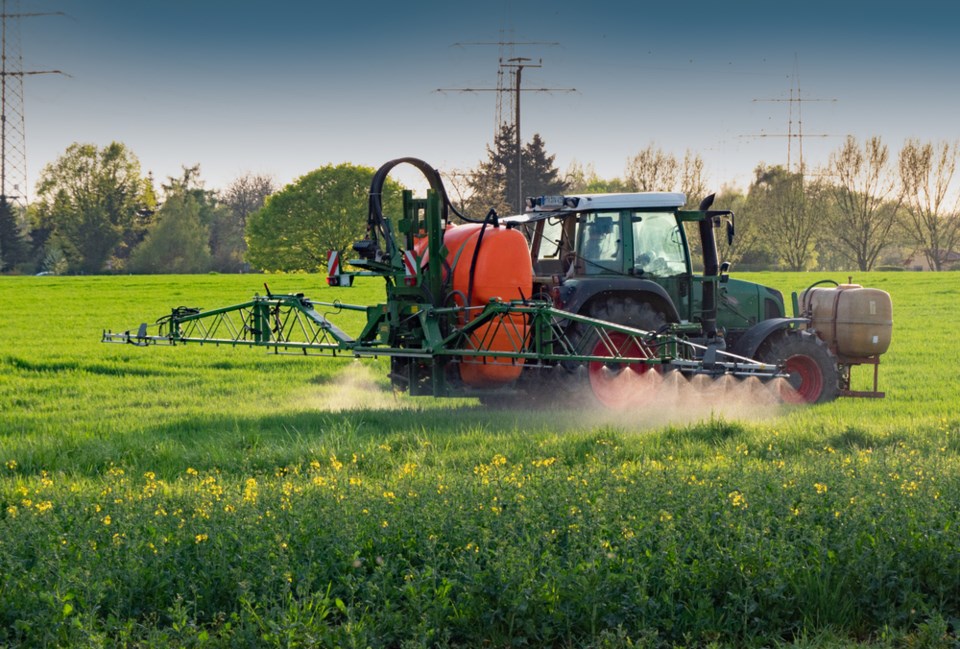The widely-used farm chemical Roundup has come under a cloud in the last few years.
Several studies have linked the long-term use of glyphosate, the generic name for Roundup, as causing cancer.
The World Health Organization cancer research agency in 2017 declared glyphosate a cancer-causing chemical amid much controversy.
Just weeks ago, a California jury ordered a $2 billion award from Bayer, the owner of Roundup, to a couple suffering from cancer.
The couple claimed successfully that three decades of exposure to glyphosate in their residential, landscaping business caused their cancer.
This award, the highest ever in the United States, comes on top of two other California awards totalling $159 million. Bayer is appealing the size of the $2 billion award.
Monsanto, the Bayer subsidiary that developed and grew wealthy on Roundup, faces 13,400 similar lawsuits in the United States.
One lawyer at the California trial said Monsanto never cared about the safety of Roundup.
In Saskatchewan, Moose Jaw farmer Gary Gadd is represented by well-known Tony Merchant in a class action lawsuit claiming that over 20 years of using the chemical caused Hodgkins lymphoma cancer.
The Bayer shareholder meeting in April was described as raucous. Since Bayer acquired Monsanto the share price has dropped 40 per cent.
Shareholders believe the American-based Monsanto took Bayer for a ride with the $60 billion sale. Some called for a plan to settle the Roundup lawsuits.
The larger Bayer was supposed to be an unassailable giant in farm chemicals and seeds. Now it may be vulnerable to a take-over.
The 150-year-old Bayer has lost $40 billion market value since acquiring Monsanto. Critics are calling for a separation of the chemical/seed division from the pharmaceutical, consumer health products and animal health divisions.
No matter what the outcome of the Bayer issue, the use of glyphosate for farming is under a cloud. Public pressure on lawmakers will restrict, if not outright ban, this farm chemical.
Restrictions, or a ban, would be devastating as there is no other easy alternative for farmers.
Another important aspect of the Roundup matter is the subsequent break down in public trust on three levels. Trust in corporations is reduced; trust in the regulators who allowed Roundup and other farm chemicals to be used is missing.
And trust in farmers who continue using glyphosate will be eroded.
Ron Walter can be reached at [email protected]




